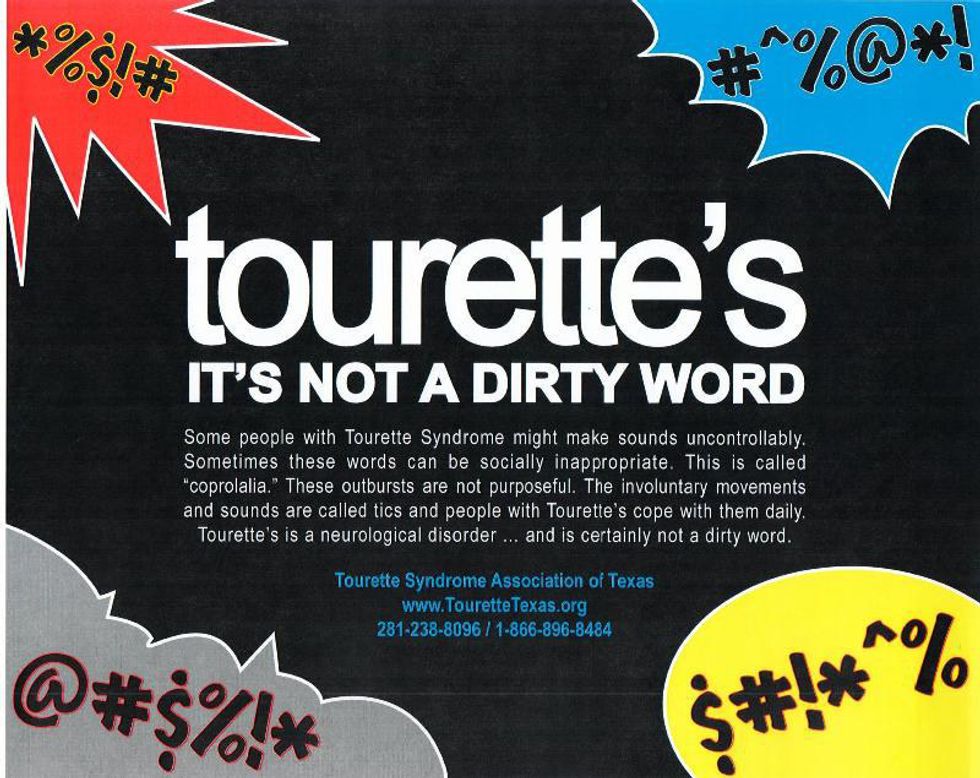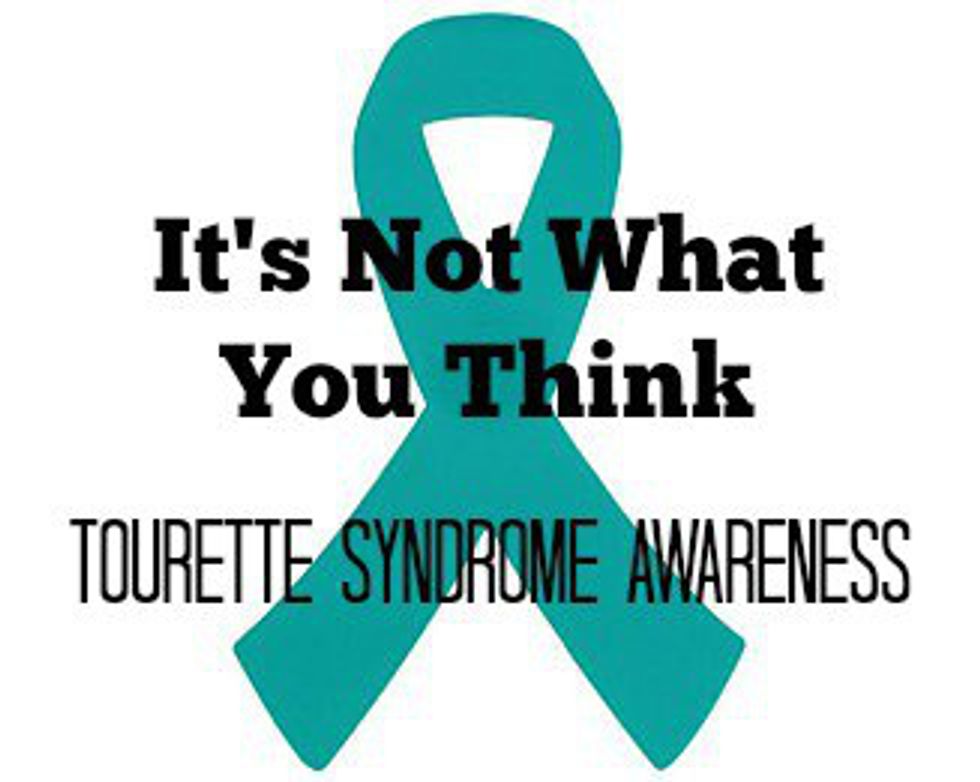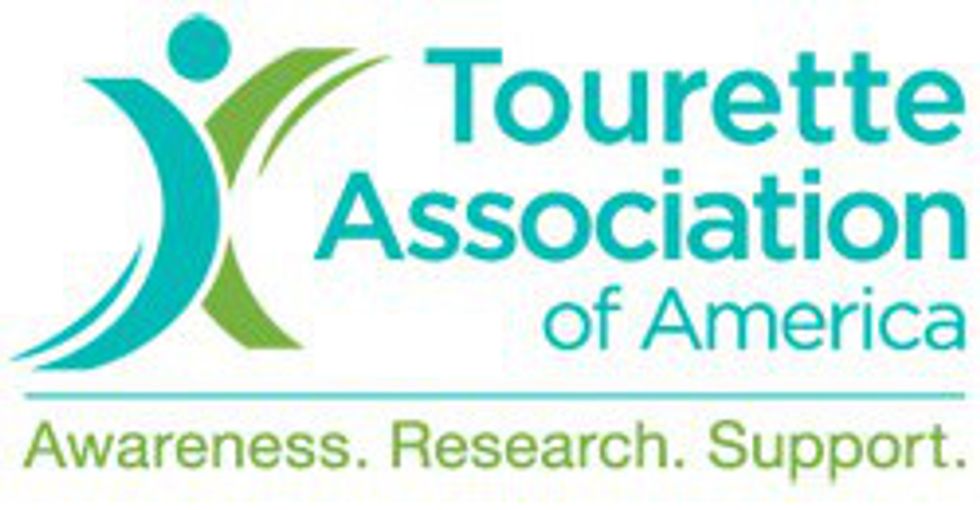From the date of May 15 to June 15, Tourette Syndrome Awareness Month is celebrated worldwide. Many will brush it off as a trivial act put in place in order to promote attention towards some insignificant health issue, but to some it means the world.
Tourette Syndrome is so misunderstood that even the definition that Google presents searchers with is flawed. When one types "Tourette Syndrome Definition" into Google, one is greeted with this explanation: "a neurological disorder characterized by involuntary tics and vocalizations and often the compulsive utterance of obscenities." This definition is almost correct. Tourette Syndrome, is in fact a neurological disorder and is actually characterized by involuntary tics. But, where Google and the mainstream media lose their ethos is in the explanation, and sometimes even exploitation of the "utterance[s] of obscenities."
Notice the Google definition of Tourette Syndrome presents us with an explanation that tells us this disorder will often exhibit the "utterance of obscenities." Now, let us notice some real facts. This portion of Tourette Syndrome in which those who possess it will vocalize inappropriate language is called "Coprolalia." You have most likely noticed over the years that this has become the defining factor of Tourette Syndrome, but guess what? Only 10 percent of people with Tourette Syndrome exhibit any signs of Coprolalia. Isn't that interesting?
Have you ever heard of the YouTube channel "Tourette's Guy" or watched multiple television episodes parodying the disorder that many suffer through every second of every day? Now, I have Tourette Syndrome, and I have been able to reach the point that I can witness these completely incorrect portrayals of my battle, but so many with my disorder have not been able to reach that point yet.
Most people who have Tourette Syndrome are diagnosed in early childhood, which is an extremely significant point of their development. I was diagnosed when I was 5 years old, and it took me over a decade to harden myself against the teasing, bullying and blatant misconceptions fired all around me. A lot of people do not know what Tourette Syndrome is, and many of those people have their own incorrect ideas that they pass on to others in ignorance.
Awareness promotes understanding, and with understanding comes many positive aspects. People still, to this day, poke fun at me for having Tourette Syndrome. Thankfully, for me, the teasing is no longer as severe, but for lots of people going through the same burdens that I am going through, this is not the case.
To those that put humans of any age down for valiantly pushing through this chronic struggle, I must ask you: Do you have any idea of what it is like to not have control over your own body during every single second of your life? Have you ever been denied services or looked down upon because of facets of your own self that you cannot control? How many friends have you lost because they could not put up with your "antics" that are, in reality, just "tics?" How many times have you been hospitalized because you injured yourself or could not control your body to the point that you needed to immediately be drugged to unconsciousness? When is the last time you had to leave a class in fear that you would disrupt the learning environment and in turn did not achieve the privilege of learning yourself? The list of questions could go on and on, and trust me, it does.
There is a Tourette Syndrome Awareness Month because it requires awareness. It really is as simple as that. The more knowledge that is gained about this neurological disorder, the less abhorrence toward those who have it and unnecessary outside negativity toward these people.
For more information about Tourette Syndrome Awareness month, you can visit the official Tourette Syndrome Association Website or even check out my YouTube channel in which I speak of it in multiple videos and present a myriad of information about the disorder.
Happy Tourette Syndrome Awareness Month!

























